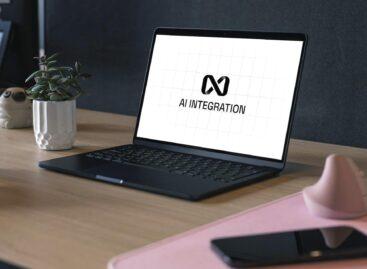Industrial digitization: the revolution is still waiting to happen due to insular operation
While in some parts of the world only robots work in factories and almost three-quarters of global companies report that they have successfully implemented Industry 4.0 projects or are in the process of implementing them, the reality is that industrial companies have a hard time finding the way to to develop some of their automated systems from isolated operation to an integrated system that is interoperable throughout production. Most of them don’t even recognize the problem or don’t know how to start, and in others the problem is that it is a complex, time- and cost-consuming project. Europe, including Hungary, is struggling with competitiveness problems, so the most effective application of the latest technologies in industry is vital.
 The global Industry 4.0 market size reached $135.38 billion in 2023, but is expected to reach $884.84 billion by 2034, according to forecasts. This enormous scale expansion is driven by the companies’ desire to be able to produce their products faster and more efficiently, while being able to respond flexibly and without major losses to constantly changing conditions and market demands. These developments are mainly driven by production optimization, real-time data recording and analysis, or better utilization of logistics areas, for which technologies such as automation, IoT sensors, artificial intelligence and advanced analytical tools are called upon.Companies are also testing digital twin solutions, with which they can fully map the reality in the digital space and make forecasts not only for the given moment, but also for the daily shift or the following months based on different scenarios. However, the situation is not unequivocally rosy, since it is difficult to transform the various digital devices into a completely interoperable, integrated system.
The global Industry 4.0 market size reached $135.38 billion in 2023, but is expected to reach $884.84 billion by 2034, according to forecasts. This enormous scale expansion is driven by the companies’ desire to be able to produce their products faster and more efficiently, while being able to respond flexibly and without major losses to constantly changing conditions and market demands. These developments are mainly driven by production optimization, real-time data recording and analysis, or better utilization of logistics areas, for which technologies such as automation, IoT sensors, artificial intelligence and advanced analytical tools are called upon.Companies are also testing digital twin solutions, with which they can fully map the reality in the digital space and make forecasts not only for the given moment, but also for the daily shift or the following months based on different scenarios. However, the situation is not unequivocally rosy, since it is difficult to transform the various digital devices into a completely interoperable, integrated system.
“It is also important to note that there is no technology that is optimal for every situation and company, and it is not even worth using them for everyone, but to precisely define the goals and the areas where their introduction would really be a big leap. In many cases, you will encounter that the company insists on a trendy development or tool, but it can be clearly shown that this does not bring them measurable benefits. At the same time, it is definitely a positive development that domestic manufacturing companies have also started to think and plan more consciously, are open and want to make good use of the opportunities offered by digitalization.”
– emphasizes Péter Tiszavölgyi, the co-founder responsible for the low-code area of the Stylers Group information technology company group.
Related news
Most Hungarian companies don’t see a return on AI developments yet
🎧 Hallgasd a cikket: Lejátszás Szünet Folytatás Leállítás Nyelv: Auto…
Read more >Related news
Cheese-cocoa-peach jam: these are the most popular cookie flavors
🎧 Hallgasd a cikket: Lejátszás Szünet Folytatás Leállítás Nyelv: Auto…
Read more >









